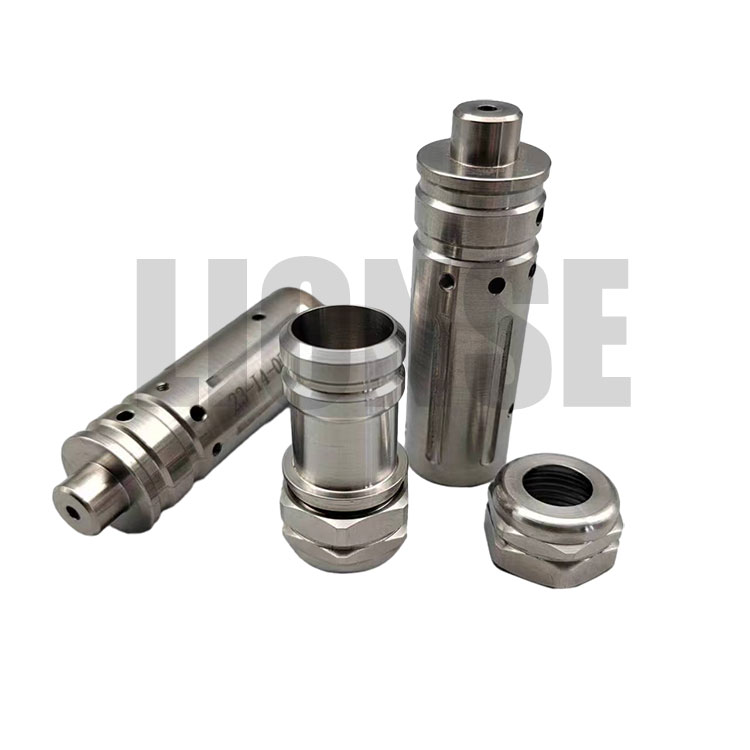Titanium's Flight-Worthy Properties: Why It's Ideal for Critical Aircraft Components
2024-06-24
Titanium has earned its place as a crucial material in the aerospace industry, particularly for manufacturing critical aircraft components. Its unique combination of properties makes it highly suitable for applications where strength, durability, and reliability are paramount. In this blog, we delve into the specific properties of titanium that make it the preferred choice for critical aircraft components, highlighting why engineers and designers favor this exceptional metal.
1. High Strength-to-Weight Ratio
Aerospace Advantage: Titanium boasts an impressive strength-to-weight ratio, rivaling that of steel but with approximately half the density. This exceptional strength relative to its weight allows for the design and construction of lightweight aircraft components without compromising structural integrity.
Fuel Efficiency: The lightweight nature of titanium components contributes to improved fuel efficiency in aircraft. Reduced weight means less fuel consumption, lower operating costs, and extended range—critical factors in aviation economics and sustainability.
2. Exceptional Corrosion Resistance
Environmental Endurance: Titanium exhibits outstanding corrosion resistance, particularly in harsh environments such as marine and aerospace applications. It forms a protective oxide layer when exposed to air or moisture, which prevents further oxidation and maintains its integrity over time.
Longevity and Reliability: Aircraft components made from titanium are less susceptible to corrosion-induced damage, ensuring longer service life and reduced maintenance requirements. This reliability is essential for critical parts like airframes, landing gear, and engine components.
3. High Temperature Tolerance
Engine Applications: Titanium’s ability to withstand high temperatures makes it ideal for use in aircraft engines and exhaust systems. It retains its strength and structural integrity at elevated temperatures, ensuring reliable performance under extreme operating conditions.
Thermal Stability: The high melting point of titanium (approximately 1,668°C or 3,034°F) allows it to maintain its mechanical properties in environments where other metals would weaken or fail. This thermal stability enhances the safety and operational reliability of aircraft engines.
4. Excellent Fatigue Resistance
Endurance Testing: Titanium exhibits superior fatigue resistance compared to many other metals, including aluminum and steel. It can withstand cyclic loading and unloading without developing cracks or failures, which is crucial for components subjected to repeated stress in aircraft operations.
Safety Assurance: Fatigue-resistant titanium components contribute to the overall safety of aircraft by minimizing the risk of structural failures due to fatigue-induced damage. This property is particularly critical for structural elements like wing spars and fuselage sections.
5. Biocompatibility and Non-Toxicity
Human Interaction: Titanium is biocompatible and non-toxic, making it suitable for components that come into contact with passengers and crew members. This property ensures compatibility with human health and safety standards, enhancing the suitability of titanium for interior applications.
Environmental Friendliness: The non-toxic nature of titanium also makes it an environmentally friendly choice. It does not release harmful substances into the environment during manufacturing or throughout its lifecycle, aligning with sustainable aerospace practices.
6. Ease of Machining and Fabrication
Manufacturing Efficiency: Despite its strength and toughness, titanium is relatively easy to machine and fabricate using modern manufacturing techniques. This ease of processing allows for cost-effective production of complex aerospace components with tight tolerances.
Versatile Applications: From structural elements to fasteners and hydraulic systems, titanium’s machinability facilitates its use across a wide range of critical aircraft applications. This versatility enhances design flexibility and operational performance.
Conclusion
Titanium’s specific properties—high strength-to-weight ratio, exceptional corrosion resistance, high temperature tolerance, fatigue resistance, biocompatibility, and ease of fabrication—make it an ideal material for critical aircraft components. Engineers and designers leverage these properties to enhance aircraft performance, safety, and longevity. As the aerospace industry continues to evolve with advancements in materials science and manufacturing technologies, titanium remains at the forefront, enabling the development of innovative and efficient aircraft designs. Its role in shaping the future of aviation underscores its status as a trusted material for achieving new heights in aerospace engineering.



